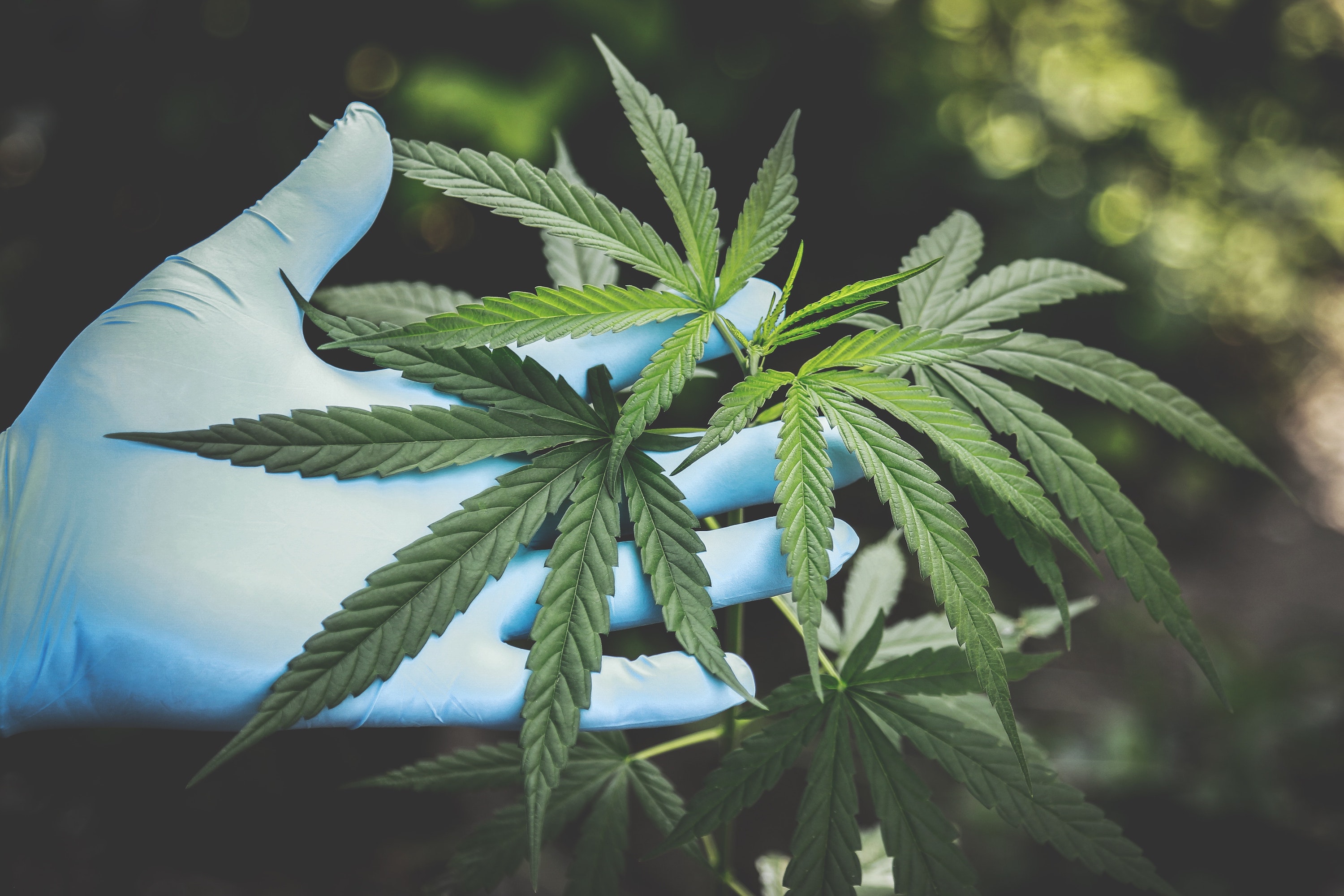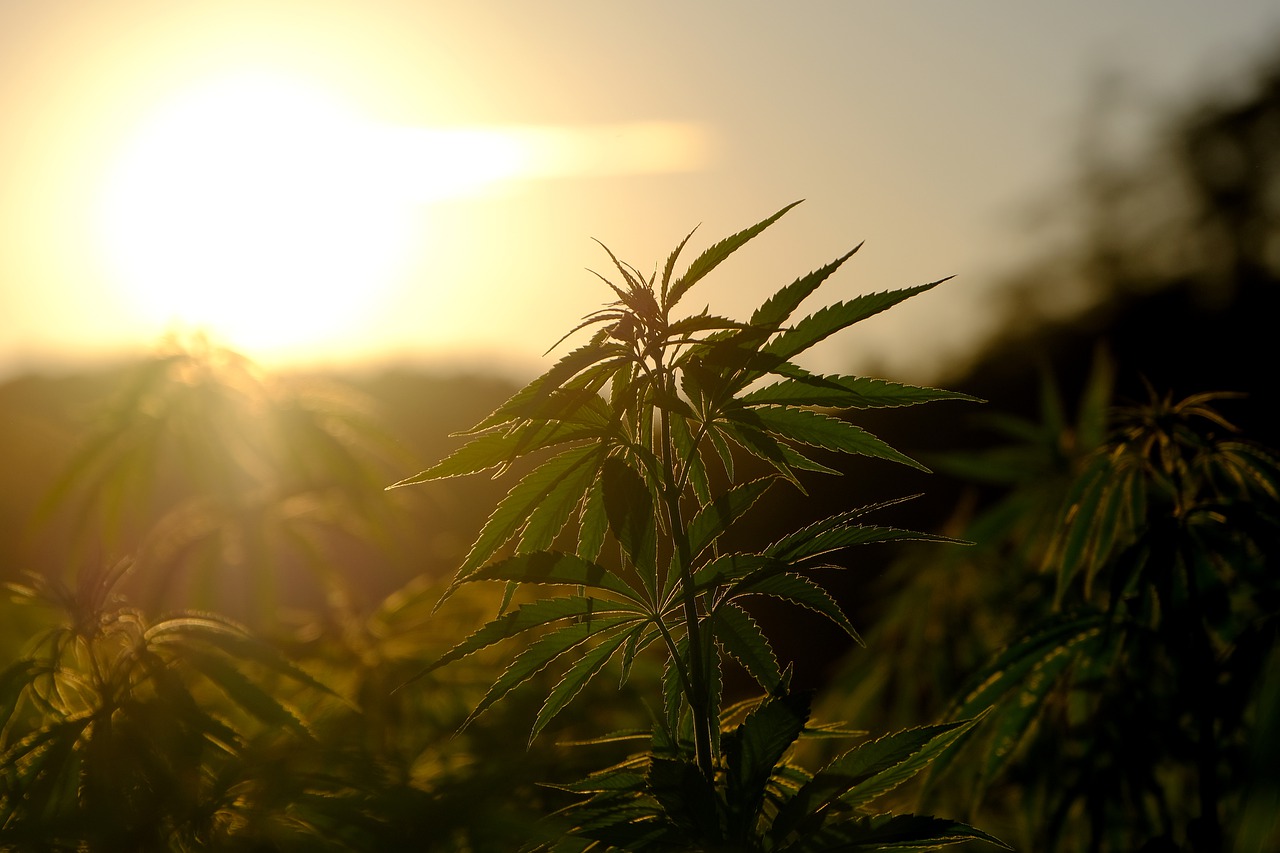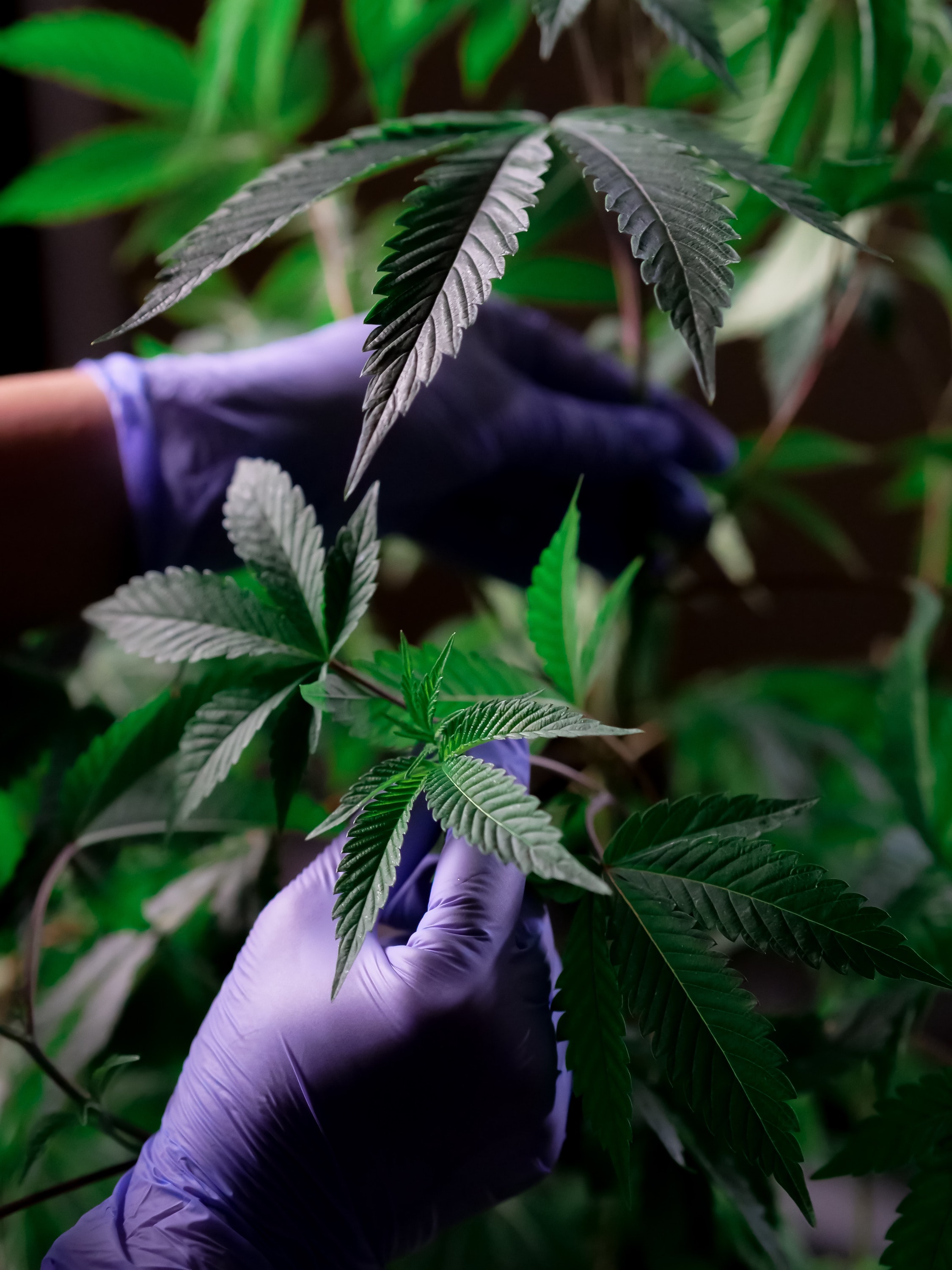It’s time! You cared, you worked, and you put in the time growing and nurturing your cannabis plants. It’s finally time to harvest.
 Gloves are essential safety equipment used throughout cannabis cultivation. They act as a barrier, protecting your maturing plants from contamination transfer from workers' hands. On the flip side gloves also protect your worker’s skin from chemicals and resin. Here’s the truth about single-use gloves.
Gloves are essential safety equipment used throughout cannabis cultivation. They act as a barrier, protecting your maturing plants from contamination transfer from workers' hands. On the flip side gloves also protect your worker’s skin from chemicals and resin. Here’s the truth about single-use gloves.
Workers’ gloves must adjust to match the cannabis plant as it matures. From dealing with resin to defoliating, the best gloves for harvesting cannabis vary to best handle the changing plant at each stage of cultivation. Read 3 tips to consider before buying cannabis gloves.
Buying the Best Gloves for Harvesting Cannabis
-
Processing
Cannabis plants and stems can snag gloves during processing which requires slightly more durability. The 6mil Eagle Visible nitrile glove provides the strength needed as well as a slight texture for an enhanced grip. If workers are reaching through and between plants where more arm protection is needed, we recommend using the 8mil Double Tough nitrile gloves which offer more protection with an extended cuff. -
Drying
Hanging cannabis plants may seem like a simple task, but the dried plants can be a challenge when it comes to snagging and ripping gloves. The 6mil Eagle Visible nitrile glove is durable enough to withstand the drying plants and additionally has a slight texture which allows a better grip. -
Trimming
Whether dry or wet trimming, gloves need to be considerably durable as they can become caked in resin. But this is the stage where details matter and the flower gains its shelf appeal power. Your trimmers need to be able to feel exactly what they are doing. The 3mil Derma2 nitrile glove is a thinner glove, allowing for tactility, without sacrificing strength. After trialling our gloves, a cannabis grower told us,
“These gloves are super durable when working with cannabis flower, the glove doesn't tear as easily as the other gloves I use which are the same variety of product and I like how the grip on the fingertips are. The fingertips are super helpful and have been a life changer when working with spliffs it feels like I can actually maneuver the product without it slipping.”
Fun cannabis glove facts:
- Glove Allergies: Eagle Derma2 and Sensitive nitrile gloves are a great choice for workers with sensitive skin or glove allergies since they are accelerator-free.
- Extreme Trimming: For trimmers who demand extreme tactility, our 2.6mil FineTOUGH nitrile gloves are a great choice.

6 Tips About Gloves for Harvesting Cannabis
Similar to cannabis products, there is a wide variety of quality in disposable gloves. How do you know which gloves for harvesting cannabis to purchase? Follow these tips.
1. Thickness & Glove Strength

The largest factor determining how easily gloves rip and tear are the raw materials they are made with. Many users understandably believe a thicker glove is stronger and won’t tear as easily. This isn’t true because cheap gloves can be produced with fillers such as chalk in order to decrease manufacturing costs. Chalk doesn’t stretch, which is a huge problem since elasticity is a major component of a glove’s strength and quality.
The quality of ingredients and manufacturing standards are directly correlated to the quality of gloves produced. Here’s a quick and easy test to estimate the quality of your gloves.
Glove durability is important for a few different reasons.
- Cost: Cheap gloves are more expensive. When a glove rips, it’s no longer usable and has to be thrown away and replaced - increasing overall glove use.
- Efficiency: Consistently ripping gloves reduce production efficiencies when workers have to stop working to change gloves.
- Contamination: A poor quality glove is a contamination risk. When a glove rips, all of the glove juice (i.e. sweat, bacteria and everything from inside of the glove and on the worker's hand) is released and can contaminate your cannabis product.
2. Glove Grade
Sterile gloves are the cleanest gloves and are used in hospital environments such as for surgery.
Medical-grade gloves are subjected to a series of FDA specified tests to ensure the gloves meet a defined list of safety requirements.
Food-handling gloves must comply with the US Food and Drug Administration regulations (FDA Title 21 CFR Part 177). Raw materials must be of “substances generally recognized as safe for use in food or food packaging.” Food grade gloves are minimally tested, allowing an extremely wide range of quality gloves to enter the US market.
'Industrial grade' has some room for interpretation. Some industrial grade gloves have had food-grade testing and others have not. We do not recommend using industrial grade gloves for handling cannabis. If you choose to do so, we strongly recommend verifying they have at least passed food glove compliance testing and have an acceptable quality level (AQL) of 2.5 or lower.
We felt the slack in government regulations left cannabis companies open to an incredible amount of unnecessary glove contamination risk. A company, rightfully so, should be able to trust the product that is in a new box of gloves. This sadly isn't the case. To protect our customers from glove risk we developed Delta Zero, our proprietary multi-layered glove testing program. Third-party testing ensures our range of Eagle gloves adhere to the highest level of consistent glove safety and performance.
When sourcing gloves for harvesting cannabis, we recommend using either medical grade gloves or food-grade gloves from a manufacturer with verified quality protocols in place.
3. Cleanliness (aka. Contamination Risk)
Imagine this. You test your product and have a recall because there is a chemical transferred from contaminated gloves. This story isn’t far-fetched. It’s happened before.
Gloves handle cannabis along every part of the cultivation process. It’s important to know the gloves touching your product don't have mold, fungus, fungicides, pathogens or toxic chemicals on them that can transfer to and contaminate your product. You’ve worked so hard to maintain the purity of your product and one box of dirty gloves can ruin it.
Our glove quality verification program, Delta Zero (patent pending), mitigates glove contamination risks to your business, ensuring a range of Eagle gloves adhere to the highest level of consistent glove safety and performance.
4. Skin Issues
Wearing gloves for long periods of time can lead to workers developing skin allergies and irritation due to the enclosed environment a glove creates. Cheap gloves manufactured with low-quality materials and chemicals also increase the risk of causing skin irritation. Read how to avoid skin disease and hand issues caused by disposable gloves.
 5. Acceptable Quality Level
5. Acceptable Quality Level
AQL measures the quality of the gloves by indicating how many pinhole defects there are right out of the box. The lower the number, the higher the glove quality. For instance, to pass inspection, medical-grade gloves require an AQL score of 2.5 or lower—which means a maximum of 2.5 gloves are allowed pinhole defects per 100. We recommend using gloves with an AQL of 2.5 or lower. We are proud to say that all Eagle nitrile gloves have an AQL of 1.5.
6. Chemical Protection
A glove’s chemical rating varies due to the different ‘recipes’ used to make the gloves. If you are working with chemicals, it’s imperative to verify the glove you are using provides adequate protection from these specific chemicals. If you are unsure, contact the supplier and they should be able to provide you with this information.
There’s a lot that goes into sourcing gloves. Read more about our ethical, traceable and fully transparent supply chain. Safeguard what matters and source quality gloves for harvesting cannabis that protect your product, staff and brand.
Have questions? Contact our team of experts who are always here to help.




